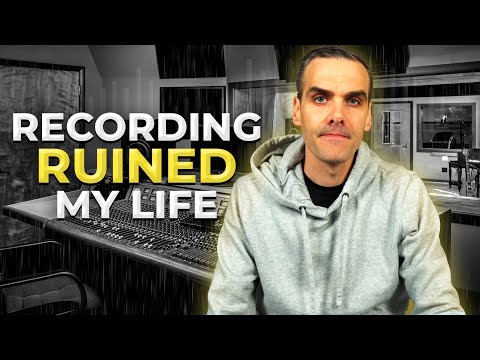Exploring the World of Sound: Sound Engineer Job Description and Salary

Sound Engineer Job Description Template
Sound Engineer Job Description A sound engineer is a professional who is responsible for the technical aspects of sound during live performances, recordings, and other audio productions. They work closely with musicians, producers, and other members of the production team to ensure the best possible sound quality. One of the important responsibilities of a sound engineer is setting up and operating sound equipment such as microphones, amplifiers, and mixing boards. They are also responsible for ensuring that all equipment is in good working condition and making any necessary adjustments or repairs. Another crucial aspect of the job is sound mixing and editing. Sound engineers use their technical skills and creativity to balance the different audio elements, such as vocals, instruments, and special effects, to create a well-balanced and harmonious sound. They also have to make sure that the sound levels are appropriate and consistent throughout the production. Additionally, sound engineers may also be involved in the recording process, either in a studio or on location. They work closely with the recording engineer to capture the best possible sound and may also assist in post-production tasks such as editing and mastering. Attention to detail and problem-solving skills are essential for a sound engineer, as they often encounter technical issues that need to be resolved quickly. They must also have a good understanding of acoustics and audio equipment to optimize sound quality. In conclusion, a sound engineer plays a vital role in the success of audio productions, using their technical expertise and creativity to ensure the best possible sound quality. Their attention to detail and problem-solving skills make them an integral part of the production team.Sound Engineer Responsibilities
Sound Engineer Requirements
How Much Does A Sound Engineer Make?
Sound Engineer Salary
| Job Title | Median Annual Salary |
|---|---|
| Sound Engineer | $53,330 |
| Audio Engineer | $52,390 |
| Recording Engineer | $51,610 |
| Live Sound Engineer | $49,630 |
| Music Producer | $48,330 |
A Sound Engineer is responsible for recording, mixing, and editing audio for various projects such as music recordings, films, television shows, and live events. They work closely with musicians, producers, directors, and other professionals to create high-quality sound experiences. The median annual salary for Sound Engineers ranges from $48,330 to $53,330, depending on the specific job title and experience level. Sound Engineers often have a strong technical background in audio equipment and software, as well as a deep understanding of acoustics and sound design principles.
Sound Engineer Salaries by Country
Top Paying Countries for Sound Engineer
| Country | Average Salary (USD) |
|---|---|
| United States | 67,000 |
| Switzerland | 61,000 |
| Australia | 56,000 |
| Germany | 54,000 |
| Canada | 51,000 |
Sound engineers in the United States earn the highest salaries among all countries, with an average salary of $67,000 per year. Switzerland follows closely with an average salary of $61,000, while Australia, Germany, and Canada also offer competitive salaries ranging from $51,000 to $56,000. These countries provide excellent opportunities for sound engineers to earn a lucrative income while pursuing their passion for audio technology. However, it’s important to consider that salary figures may vary depending on factors such as experience, qualifications, and the specific industry within which the sound engineer operates.
A video on the topic Sound Engineer
Video Source : Hardcore Music StudioInterview Questions for Sound Engineer
1. What is the role of a sound engineer in a live concert setting?
A sound engineer in a live concert setting is responsible for ensuring that the audio quality is at its best. They handle the mixing, amplification, and distribution of sound to the audience, as well as the setup and operation of sound equipment.
2. What are the key skills required to be a successful sound engineer?
Some key skills required to be a successful sound engineer include proficiency in audio mixing and editing software, knowledge of sound equipment and acoustics, attention to detail, good communication skills, and the ability to work well under pressure.
3. How do you handle technical issues or equipment malfunctions during a live performance?
When faced with technical issues or equipment malfunctions during a live performance, it is important to remain calm and quickly troubleshoot the problem. This may involve checking connections, adjusting settings, or even swapping out faulty equipment if necessary.
4. Can you explain the concept of sound reinforcement?
Sound reinforcement refers to the amplification and distribution of sound in a live setting to ensure that the audience can hear the performance clearly. This involves setting up speakers, microphones, and other audio equipment strategically to achieve the desired sound coverage and quality.
5. How do you approach sound mixing for different genres of music?
Sound mixing for different genres of music requires an understanding of the specific characteristics and elements that define each genre. For example, when mixing rock music, emphasis may be placed on the guitars and drums, while in a classical performance, clarity and balance of instruments may be the priority.
6. What steps do you take to ensure the sound quality in a recording studio?
To ensure sound quality in a recording studio, it is important to have a well-designed acoustic space, high-quality microphones and preamps, and a good monitoring system. Additionally, proper gain staging, signal routing, and use of audio processing tools during recording and mixing are crucial.
7. How do you manage competing sound elements during a live event, such as vocals, instruments, and background tracks?
Managing competing sound elements during a live event requires careful balancing and mixing. The sound engineer must prioritize the most important elements based on the performance and adjust the levels of each sound source accordingly to achieve a cohesive and balanced mix.
8. Can you explain the concept of sound design?
Sound design involves creating and manipulating sound elements to enhance the overall experience of a performance, movie, or video game. It includes the use of audio effects, Foley sounds, dialogue editing, and soundscapes to create a desired atmosphere or emotion.
9. How do you ensure the sound meets the artist’s vision or the director’s requirements?
To ensure the sound meets the artist’s vision or the director’s requirements, communication and collaboration are key. It is important to have a clear understanding of their expectations and preferences, and to work closely with them throughout the process to make adjustments and achieve the desired sound.
10. How do you stay updated with the latest advancements in sound engineering technology?
To stay updated with the latest advancements in sound engineering technology, I regularly attend workshops, conferences, and trade shows related to audio engineering. I also engage in continuous learning through online resources, forums, and by experimenting with new equipment and software.






